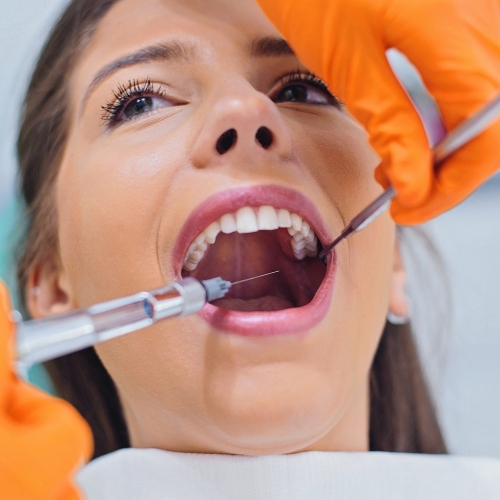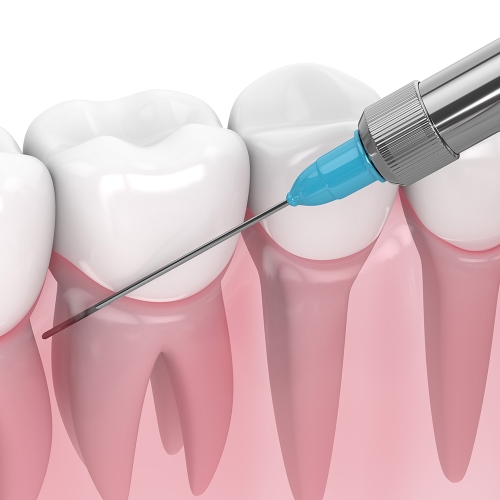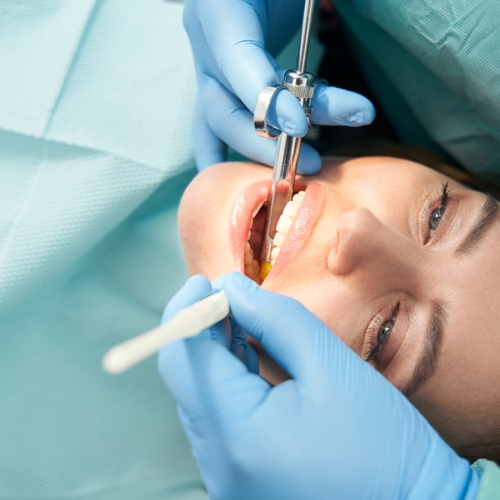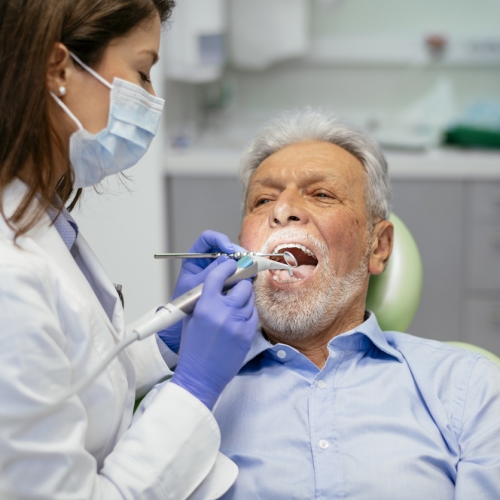Here are some of the best foods for oral health:
Water
Water is by far the best choice for hydration, and it is essential for oral health. Drinking plenty of water every day can help keep teeth and gums healthy. It helps to rinse away food and bacteria, and it hydrates the mouth. Adequate water intake is necessary for optimal flow of saliva and the prevention of dry mouth that can lead to tooth decay.
High carbohydrate sugary beverages should be avoided, including soft drinks and fruit juices, and water is the best replacement. Oral bacteria that feed on sugar can form a plaque, leading to erosion of tooth enamel and dental caries. The acidity of carbonated soft drinks and fruit juices can also lead to tooth erosion.2 The American Dental Association recommends drinking fluoridated water to prevent tooth decay and caries. Studies show that fluoride in community water systems prevents at least 25% of tooth decay in children and adults.3
Vegetables and Fruits
Fruits and vegetables are among the best foods for oral health. They are high in essential vitamins and minerals that are important for the prevention of oral diseases. They are also high in water and promote saliva production, which is important for optimal oral health.
Crisp vegetables and fruits, such as apples and celery, help scrub plaque away during chewing. This promotes gum health and helps prevent tooth enamel erosion. A diet rich in vegetables and fruits is also linked to a lower risk of oral cancer.4 It is important to consume a variety of vegetables and fruits to get the full benefit of a wide spectrum of micronutrients.
Cheese
Cheese is known to have cariostatic properties, which means they prevent the development of dental caries. One reason for the oral health benefits of cheese might be the stimulation of salivary glands caused by chewing hard cheese. An increase in saliva counteracts the acidity of sugary foods, which can help reduce the incidence of plaque.
Other components of cheese that have effects in preventing enamel erosion are casein and whey.5 Calcium and phosphorous found in cheese may be another reason for its protective oral health benefits. Other sources of calcium include yogurt, milk, green leafy vegetables, seeds, beans, lentils, canned salmon, almonds, and fortified foods. Be sure to choose dairy products without added sugar. Unsweetened versions should be chosen for plant milk dairy alternatives such as almond milk and soy milk.
Lean Protein
Lean meat, poultry, fish, milk, and eggs contain valuable sources of protein, which is important for oral health. In severe cases of protein malnutrition, tooth enamel and salivary glands can be eroded, leading to the onset of oral diseases. Lean proteins are rich in phosphorus which plays an important role in the teeth, gum, and jaw health. Other sources of lean protein include low-fat or nonfat dairy, beans, peas, lentils, soy foods, and nuts.
Black and Green Tea
Some studies have shown that compounds in black and green tea have anti-cariogenic properties, which means drinking unsweetened tea may help prevent cavities. The compounds in tea leaves have antibacterial effects, which may help prevent plaque formation. Tea is a good source of fluoride, especially when prepared with fluoridated water. Fluoride helps prevent tooth decay and caries.6
Nuts
Nuts are important sources of calcium, phosphorus, and vitamin D, all important nutrients for oral health. Crunching on nuts stimulates saliva production which has beneficial effects on oral health. They are low in sugar and high in protein, which protects against the risk of dental caries.7 Brazil nuts are a good source of phosphorus, and almonds are a good source of calcium. Precaution should be taken with shells — cracking can damage tooth enamel.
Final Takeaways
Oral health is best supported by a balanced, nutritious diet. Limiting sugar and eating foods rich in fiber, lean protein, and nutrients can go a long way to maintaining oral health and preventing disease.
References:
- WHO Calls on Countries To Reduce Sugars Intake Among Adults and Children. World Health Organization. March 5, 2015. Accessed June 3, 2022. Accessed from: https://www.who.int/news/item/04-03-2015-who-calls-on-countries-to-reduce-sugars-intake-among-adults-and-children
- Salas MM, Nascimento GG, Vargas-Ferreira F, Tarquinio SB, Huysmans MC, Demarco FF. Diet influenced tooth erosion prevalence in children and adolescents: Results of a meta-analysis and meta-regression. J Dent. 2015;43(8):865-875. doi:10.1016/j.jdent.2015.05.012
- Fluoride in Water. American Dental Association. Accessed June 3, 2022. Accessed from: https://www.ada.org/resources/community-initiatives/fluoride-in-water
- Scardina GA, Messina P. Good oral health and diet. J Biomed Biotechnol. 2012;2012:720692. doi:10.1155/2012/720692
- Herod EL. The effect of cheese on dental caries: a review of the literature. Aust Dent J. 1991;36(2):120-125. doi:10.1111/j.1834-7819.1991.tb01340.x
- Hamilton-Miller JMT. Anti-cariogenic properties of tea (Camellia sinensis). J Med Microbiol. 2001;50(4):299-302. doi:10.1099/0022-1317-50-4-299
- Good Foods for Dental Health. American Dental Association. Accessed June 3, 2022. https://www.mouthhealthy.org/en/nutrition/good-foods-slideshow



































